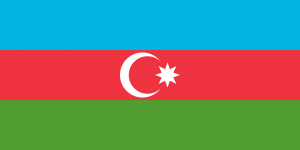Language/North-azerbaijani/Vocabulary/Relationships
As a language teacher, I always try to make my lessons engaging and culturally informative. Today, we will be learning the words and phrases for different types of relationships in North Azerbaijani. Relationships are an essential aspect of social interaction, and this lesson will equip you with the vocabulary to discuss them in North Azerbaijani.
Relationships are the building blocks of any society. North Azerbaijani society values relationships, which have been passed down from generation to generation. In this lesson, we will learn how to describe different types of relationships in North Azerbaijani.
Vocabulary
Below is a list of vocabulary for different types of relationships in North Azerbaijani.
| North Azerbaijani | Pronunciation | English |
|---|---|---|
| dost | dost | friend |
| atəşgah | atəʃɡah | colleague |
| qonşu | konʃu | neighbor |
| bacı | batsi | sister |
| qardaş | qardaʃ | brother |
| ana | ana | mother |
| ata | ata | father |
| nəvə | nevə | nephew/niece |
Here are some phrases that can be used to describe relationships:
- Dostum - My friend
- Bacım - My sister
- Qonşum - My neighbor
- Atəşgahım - My colleague
Words for different types of relationships are valuable in day-to-day communication, allowing people to address others more accurately and respectfully.
Conversation
Let's learn this vocabulary in a real-life context:
A: Selam, dostum. Necəsən? (Hello, my friend. How are you?) B: Salam, sağ ol. Yaxşıyam, sən? (Hello, thank you. I'm fine. And you?) A: Mən də yaxşıyam. (I'm also fine.)
In the above example, 'dostum' is used to refer to a friend. It is also worth noting that we use 'sağ ol' in Azerbaijani to answer 'how are you' instead of using 'good' or 'fine'.
Conclusion
Learning the words and phrases to describe the relationships in North Azerbaijani is an essential aspect of language learning. These allow us to better understand another's perspective and speak more accurately and respectfully. Knowing cultural context enhances language learning and shows respect for the people and culture behind the language.
I hope you enjoyed this lesson, and feel confident using the newly acquired vocabulary in your conversations. Don't be afraid to practice using these new words with your North Azerbaijani-speaking friends or acquaintances, and incorporate them in your day-to-day conversations.
Remember that language learning is a process, and every small step counts. Keep going, and soon you'll be fluent in North Azerbaijani!

